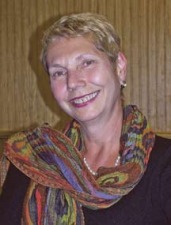By Debbie Gardner PRIME Editor Carol Baribeau and I had never met, never even spoken on the telephone. As busy women are apt to do, we'd communicated by email. The arrangements for us to meet and chat were made online. Sitting at a table outside the East Longmeadow Panerra Bread, I carefully positioned the background materials I'd printed out on Rays of Hope so that the walk's distinctive logo was visible. I added a copy of the September issue of PRIME, folded so the masthead would show. I figured that way she would be able to identify me. At the appointed time a statuesque woman with close-cropped blonde hair crossed the parking lot and walked directly up to me. "Debbie?" she asked. "Hi, I'm Carol." A few minutes later we were sitting in a booth, waiting for our coffees to cool a bit, and talking about the 15th annual Rays of Hope breast cancer walk, of which Baribeau is a 2008 co-chair. Celebrating 15 years of Hope "I really want to get the message out that my goal as chair is to raise awareness, and money," Baribeau said. As a member of the Rays of Hope Advisory Board since the late 1990s, she knows intimately how important the monies raised by the annual walk are to funding programs, research and support services for breast cancer patients and their families in Western Massachusetts. "A lot of volunteer time is put into reviewing [the various grant] proposals and spending the monies that the walkers raise," she said, commending the 20 women from all walks of life business, medical community, Latino community and black community as well as several breast cancer survivors who give of their time to see the funds raised go to appropriate projects. As a breast cancer survivor herself she was diagnosed in 2002 shortly before her 50th birthday Baribeau also knows from personal experience just how much of a lifeline the services funded by Rays of Hope can be to someone battling the disease. "That was [walk founder Lucy Giuggio'] vision 15 years ago," Baribeau said. "She was a nurse, a medical professional, and she found it daunting to negotiate through the medical field and all the processes associated with her diagnosis and treatment." "In the past 15 years we've made a significant difference in the care and treatment of breast cancer in our community," Lucy Giuggio Carvalho told PRIME in a telephone interview about the upcoming walk. |
 |
 |